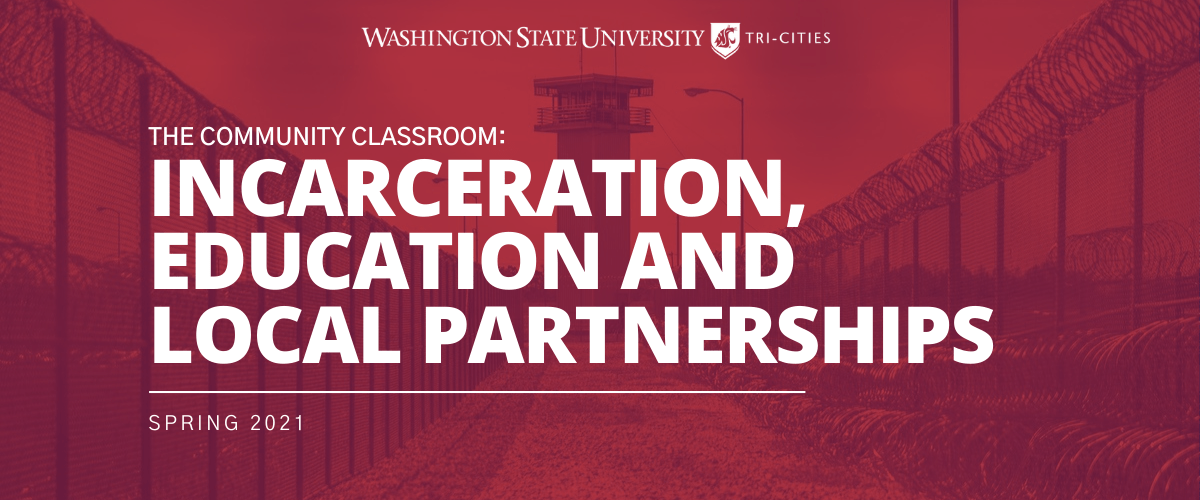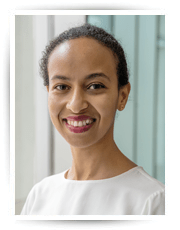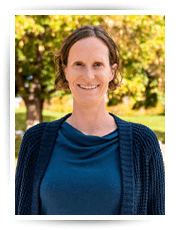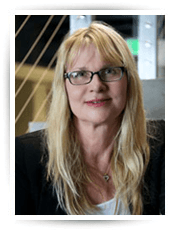
Community Classroom Series

Washington State University Tri-Cities will host several presentations on the concept of climate justice during its “Community Classroom” series. The concept of “climate justice” involves the ways in which climate change can have differing social, economic, public health, and other impacts on underprivileged populations and communities. Goals of climate justice include just division, fair sharing and equitable distribution of impact and the need to ensure that our responses don’t repeat and reinforce existing systemic injustice.
The Community Classroom events are presented by the Offices of Student & Academic Affairs, WSU Tri-Cities Diversity, Equity, and Inclusion Committee and the WSU Tri-Cities MOSAIC Center for Student Inclusion.
Workforce Equity: Perspectives From Local Women Working in Climate and Clean Energy Fields
March 29 | 3 p.m. – 4 p.m.
OPEN TO STUDENTS, STAFF, FACULTY & TRI-CITIES COMMUNITY
East Auditorium and Zoom
Join us for another Community Classroom event in honor of Women’s History Month.
Cosponsored by the WSU Tri-Cities Women in STEM Club.

Meklit Melesse
Bio
Meklit Melesse is a Civil Engineering Graduate student at WSU. Her research focuses on multi-reservoir management on the Nile River. Prior joining the WSU, Meklit worked in academia and research focusing on water related issues. She also worked on different construction projects focusing on sanitary works in Ethiopia. Furthermore, she is a Nile enthusiast and has explored the basin through music and public-diplomacy.

Dr. Sarah Roley
Bio
Dr. Sarah Roley is a faculty member in WSU Tri-Cities’ College of Arts and Sciences School of the Environment. She is an aquatic ecologist and biogeochemist. She researches the movement and transformation of nutrients, especially in the context of water quality and plant nutrition. Prior to coming to WSU, she was a post-doctoral researcher at Michigan State University. She holds a PhD in biology from the University of Notre Dame, an MS in conservation biology from the University of Minnesota, and a BS in biology and a BA in English from Bemidji State University. When she’s not working, Dr Roley can be found running, gardening, reading fiction, playing piano, or camping with her family.

Birgitte Kiaer Ahring
Bio
Dr. Birgitte Ahring, is a Professor at The Bioproducts, Sciences and Engineering Laboratory (BSEL) at WSU Tri-Cities. She is a faculty member of Voiland School of Chemical Engineering & Bioengineering and of Biological System Engineering at WSU. Birgitte earned her BSc, MSc and PhD from the Department of Biotechnology at University of Copenhagen, Denmark, followed by post-doctoral studies at University of California, LA (UCLA). In 2008, she was pursued by WSU to be the first Director of BSEL. In this position, she received Washington State’s STAR researcher award of $1.68 million. By the time she decided to step down from her position in 2016, she had grown the WSU staff at BSEL to fifty-five active researchers as well as established an active collaboration program with PNNL. Currently Birgitte is actively running several large research projects funded by agencies such as DOE and NASA. Birgitte is the founder and co-founder of many start-up companies within the Clean-Tech space, several of which are active today.
Previous Recorded Speakers Series
Race, Equity and Engaged Citizenship | Fall 2020 Community Classroom Series
History of Civil Rights in the Tri-Cities: Past and Present
Robert Bauman and Robert Franklin, both History faculty at Washington State University, Tri-Cities, will give a presentation on the history of African-American activism in the Tri-Cities from the 1940s-1970s. The presentation will highlight efforts to end racial segregation in the Tri-Cities, including civil rights marches in Kennewick and Pasco in the 1960s and 1970s. The presentation is based on material from their forthcoming book, Echoes of Exclusion and Resistance: Voices from the Hanford Region, to be published by WSU Press in November. This event will also welcome the following panelists: life coach and radio personality Reka Robinson, Daishaundra Loving-Hearne, co-CEO of the Urban Poets Society and organizer with the Black Lives Matter Coalition: Tri-Cities, and Naima Chambers Smith, CEO of the Tri-Cities Diversity and Inclusion Council. They will talk about the advocacy efforts they are spearheading within our local community around racial justice and how others can be a part of supporting the work.
Digital Dissensus: Discovering Truth in an Era of Misinformation
Mike Caulfield, director of blended and networked learning at WSU Vancouver and nationally recognized digital literacy expert will discuss the roots of our current “digital dissensus” and explain how our approach to education may be making the problem worse. How do we design education for a world where information is plentiful, and attention is the scarcity? How do we encourage analysis and engagement in our students without having those same impulses gamed by bad actors? What epistemic stances and heuristics serve the public in a world where expertise is niche and very little is directly verifiable, and where facts are atomized, separated from analysis, and reassembled in bizarre and dangerous ways?
Incarceration, Education & Local Partnerships | Spring 2021 Community Classroom Series
Washington State University Tri-Cities hosted several presentations on potential solutions for the school-to-prison pipeline, as well as barriers for individuals’ successful re-entry into society from prison, as part of its latest “Community Classroom” series that begins this month.
Presenters will provided perspectives and strategies for how communities can proactively change statistics and pathways for successful rehabilitation. Attendees will be invited to explore the current state of affairs in the regional Tri-Cities area and investigate opportunities for stronger partnerships for incarcerated and formerly incarcerated members locally
Join us in learning from esteemed friends of the university including social service workers, educators, elected officials, prison leadership and WSU alumni as we go back to school to be better neighbors, leaders, and citizens and invest in developing a more inclusive Tri-Cities.
This panel discusses the role of the community and schools, in particular, in reducing the number of individuals entering the prison system. Speaking from respective areas of expertise, the moderated panel will discuss the possibilities and challenges of this work, as well as share ideas about how communities can come together to support members most vulnerable to incarceration.
Speakers: Dr. Ericka Walters, Harry B. Grant Jr., Emnanuel “Manny” Garcia
This panel discussion on the affordances of rehabilitative programs for incarcerated people. Each panelist will present on programs they oversaw or currently work with, as well as the role of the community in advocating for and providing resources and opportunities within local and state facilities.
Panelists:
Stephan Sinclair, Secretary of the Washington State Department of Corrections
Robert Jackson, Associate Superintendent of the Washington State Penitentiary
Carol Hinds, Family Advocate
Loretta Taylor, Educational Services Administrator
Noel Vest, a formerly incarcerated scholar and WSU Tri-Cities alumnus, will discusses principles and strategies for building a pathway out of incarceration and into higher education with moderator Anna Plemons, WSU Tri-Cities assistant vice chancellor of academic affairs. Drawing on his expertise as a post-doctoral research fellow in the Systems Neuroscience and Pain Lab at Stanford, Vest speaks to the ways addiction and recovery impact reentry.




